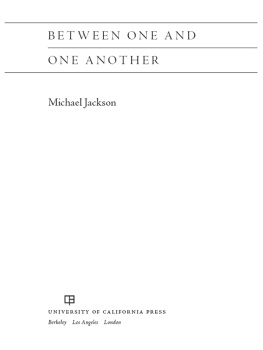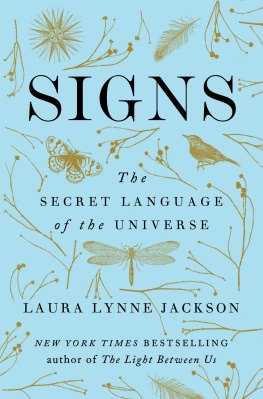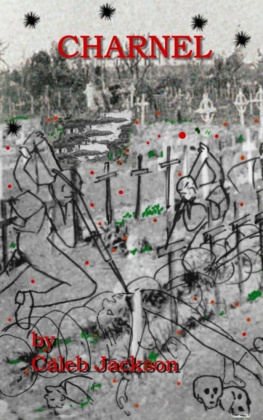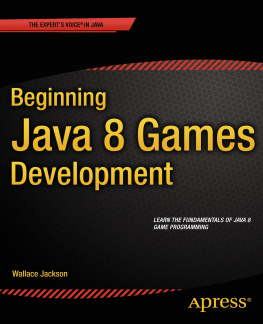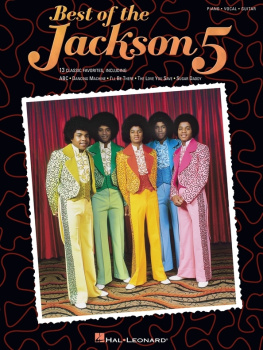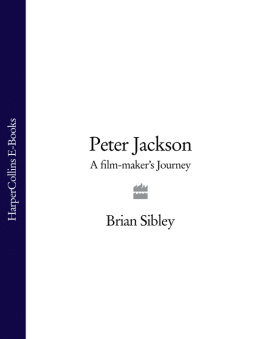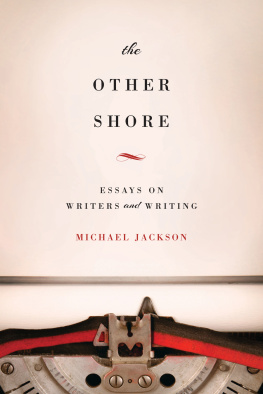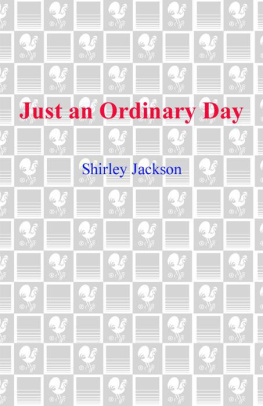Jackson - Between One and One Another
Here you can read online Jackson - Between One and One Another full text of the book (entire story) in english for free. Download pdf and epub, get meaning, cover and reviews about this ebook. year: 2012, publisher: University of California Press, genre: Science. Description of the work, (preface) as well as reviews are available. Best literature library LitArk.com created for fans of good reading and offers a wide selection of genres:
Romance novel
Science fiction
Adventure
Detective
Science
History
Home and family
Prose
Art
Politics
Computer
Non-fiction
Religion
Business
Children
Humor
Choose a favorite category and find really read worthwhile books. Enjoy immersion in the world of imagination, feel the emotions of the characters or learn something new for yourself, make an fascinating discovery.
Between One and One Another: summary, description and annotation
We offer to read an annotation, description, summary or preface (depends on what the author of the book "Between One and One Another" wrote himself). If you haven't found the necessary information about the book — write in the comments, we will try to find it.
Jackson: author's other books
Who wrote Between One and One Another? Find out the surname, the name of the author of the book and a list of all author's works by series.
Between One and One Another — read online for free the complete book (whole text) full work
Below is the text of the book, divided by pages. System saving the place of the last page read, allows you to conveniently read the book "Between One and One Another" online for free, without having to search again every time where you left off. Put a bookmark, and you can go to the page where you finished reading at any time.
Font size:
Interval:
Bookmark:
ACKNOWLEDGMENTS
My greatest debt is to friends who allowed me to publish their stories, experiences, and opinions in this bookKeith Egan, Brijen Gupta, Sewa Magba Koroma, Fiona Murphy, Neni Panourgi, Jrgen Pedersen, McGinty Salt, and Sofka Zinovieff. I am also grateful to other friends for comments on drafts of this workDavd Carrasco, Charles Hallisey, Robert Desjarlais, Adam Lyons, Don Seeman, and Tyler Zoanni. Acknowledgment is also due to friends who have passed on, yet figure in the pages of this book, as in my life, as spiritual interlocutorsPeter Fisher, Peter Herbst, Pauline Jackson, Keti Ferenke Koroma, Galina Lindquist, and Richard Rorty. Lulie El-Ashry provided timely research assistance. And my sincere thanks are due to Reed Malcolm for his generous support of my work. Finally, I thank the following copyright holders for material reprinted here with their permission: Berghahn Books, Inc., for After Understanding: A Memoir of Galina Lindquist, in Religion, Politics and Globalization: Anthropological Approaches, ed. Dan Handelman and Galina Lindquist (New York: Berghahn, 2011), pages xvxix; Duke University Press, for excerpts from The Palm at the End of the Mind: Relatedness, Religiosity and the Real (Duke University Press, 2009), pages 16267, and from In Sierra Leone (Duke University Press, 2004, 2005), pages 4148.
TEXT
10.5/14 Jenson
DISPLAY
Jenson Pro (Open Type)
COMPOSITOR
Westchester Book Group
INDEXER
Eileen Quam
PRINTER AND BINDER
IBT Global
CHAPTER 1
Preamble
Lived experience is always simultaneously present to itself and absent from itself.
Jean-Paul Sartre
In the late 1930s, Gregory Bateson and Margaret Mead did pioneering ethnographic fieldwork in a Balinese village, using still and movie cameras to capture some of the intangible aspects of Balinese culture and everyday life, including trance, eating, gesture, mourning, family interactions, children's play, art, and shadow-play puppets. In her introductory essay to their 1942 monograph, Mead speaks of a Balinese passion for being part of a noisy, festive crowd. Whether a marketplace, temple court, theatrical event, elaborate carving, or close-packed array of offerings on an altar, the crowd preference is seen everywhere in Balinese life. One photo shows a carver who, having completed a difficult piece of work, sits staring into space, utterly empty and spent. Other photos show children, with dreamy and absentminded expressions on their faces, sitting or standing close to a parent. Entitled Awayness, this page of photographs also includes a psychopathic vagrant sitting incommunicado in the anthropologists' compound.
When I first encountered this innovative ethnographic work in the early 1970s, I failed to see what was singularly Balinese in these images. As Herman Melville observes in Moby Dick, this oscillation between moments of association and dissociation is as true of whale calves as of human infants. As human infants while suckling will calmly and fixedly gaze away from the breast, as if leading two different lives at the same time; and while yet drawing mortal nourishment, be still spiritually feasting upon some unearthly reminiscence; even so did the young of these whales seem looking up towards us, but not at us, as if we were but a bit of Gulf-weed in their new-born sight. It may be, as Bateson and Mead suggest, that in Bali the state of dreamy-relaxed disassociation becomes the basis of trance and thereby is assigned a positive social value that it may not attain in the West, where children are discouraged from daydreaming and told to snap out of itthough prayer, meditation, days of rest (Sabbath/Shabbat), fasting (Lent/Ramadan), and remembrance, or moments of silence for the dead, may be compared to the Balinese silent and trance states. Unfortunately, Bateson and Meadlike many anthropologistsare so focused on what is culturally unique that they overlook what is existentially universal, in this case a capacity for non-personal concentration that is present in all human beings, even though it finds expression in manifold ways. Moreover, this alternation of zoning in and zoning out echoes the rhythms of work and relaxation, waking and sleeping, and focused and aimless action that characterize life in every human society and are essential to well-being.
This book explores some of the variations on this interplay between being a part of and being apart from the world. As such, it builds upon my previous existential analyses of elementary forms of intersubjectivity and of the indeterminate relationship between experience and behavior or experience and belief.
By implication, neither complete detachment nor complete engagement is a real ontological possibility, despite early anthropologists' claims that primitive people live in a state of mystical participation with significant othersa collective consciousness, a group mindor the claims of sages for a transcendental and mystical fusion with the divine. Rather, these contrasted terms suggest that while human existence is profoundly social (comprising relationships with others), it always entails a sense of our own singularity and aloneness (a relationship with oneself).
FIELDWORK AS AN ABSORBING ERRAND
It is part of the received wisdom of social anthropology that fieldwork is an initiatory rite. Unless one proves oneself in the field, one has not earned the right to call oneself an anthropologist. Little wonder, then, that novice ethnographers, about to leave the sanctuary of college life and submit themselves to the perils of fieldwork, experience considerable anxiety. Daunted by the prospect of speaking a foreign language, eating unpalatable food, living in uncomfortable quarters, and questioning strangers on potentially inappropriate matters, anthropological neophytes seek assurances that they will survive this ordeal and succeed in their goals. What should I read on ethnographic method? I am asked. What did you do when you first went into the field? How do I know that people won't reject me? In responding to such questions, I have recourse to humor. I recount how my academic advisor at Cambridge sent me to see Dr. Hawtrey May, a physician who had been dispensing medical advice and survival tips to expedition members, colonial administrators, and research scientists since the 1930s. Always send your beater ahead of you in case of snakes, Hawtrey May advised. Kaolin for dysentery. Bungs you up but stops the runs. Quinine ahead of the fever, not after, and always boil your water.
In a more serious vein, I downplay the exoticism of fieldwork. Books on method, from Notes and Queries to the most recent manual, give the impression that one is about to enter a laboratory rather than another lifeworld in which human beings are going about their lives, caring for their children, struggling to make ends meet, getting along with neighbors, visiting friends, meeting ritual obligations, seeking respite from the daily grind. I suggest to my nervous students that they think of fieldwork as they would any other transitional experience in lifestarting school, leaving home for the first time, moving to another town, falling in and out of love. Such experiences seem insurmountable when contemplated in advance but comparatively straight forward in retrospect. The anxiety of doing fieldwork is a form of stage fright or first-night nerves. As soon as one is on stage, one's panic vanishes. Finally, I tell my students to place their trust in the protocols of hospitality, which are basically the same throughout the world. As a guest, you are expected to be unobtrusive and respect the rules of the house; in return, your hosts are bound to take care of you. Moreover, abstract knowledge of quantitative and qualitative methodologies, of great books and foreign languages, will not help you reach an understanding of others unless you share in their lives as a fellow human being, with tact and sensitivity, care and concern.
Next pageFont size:
Interval:
Bookmark:
Similar books «Between One and One Another»
Look at similar books to Between One and One Another. We have selected literature similar in name and meaning in the hope of providing readers with more options to find new, interesting, not yet read works.
Discussion, reviews of the book Between One and One Another and just readers' own opinions. Leave your comments, write what you think about the work, its meaning or the main characters. Specify what exactly you liked and what you didn't like, and why you think so.

